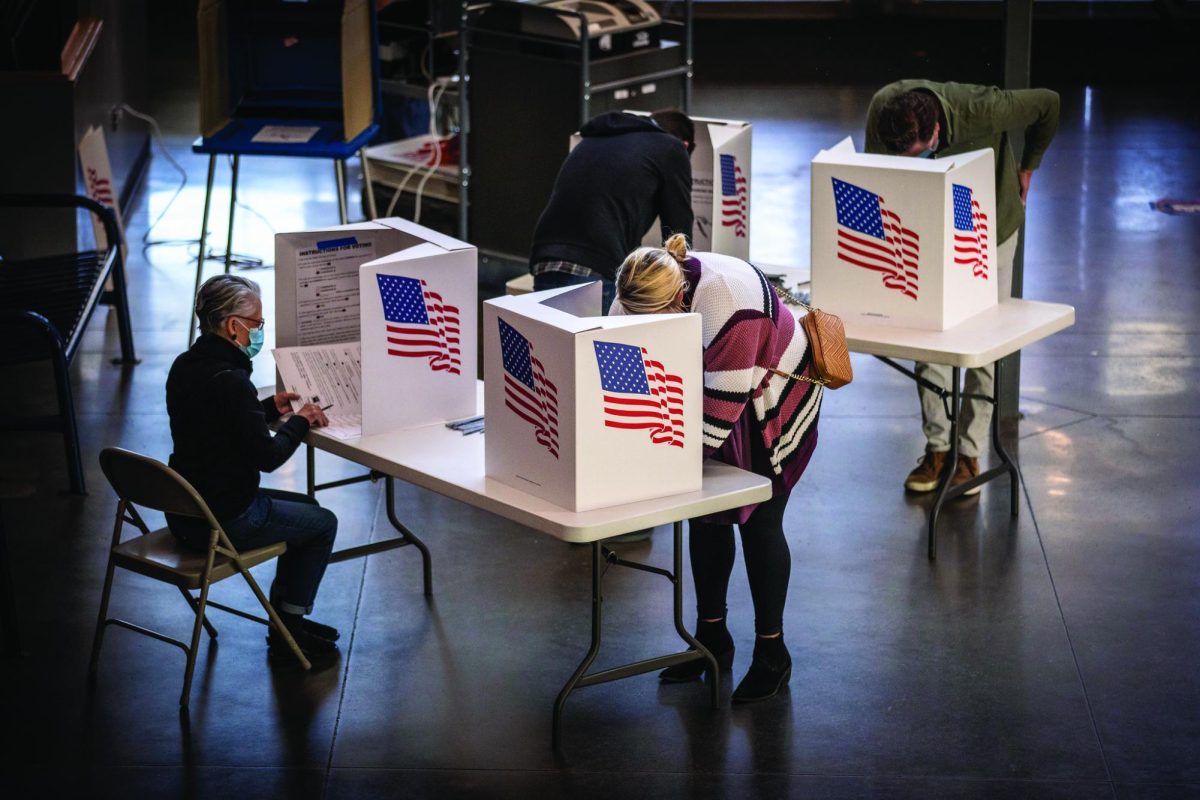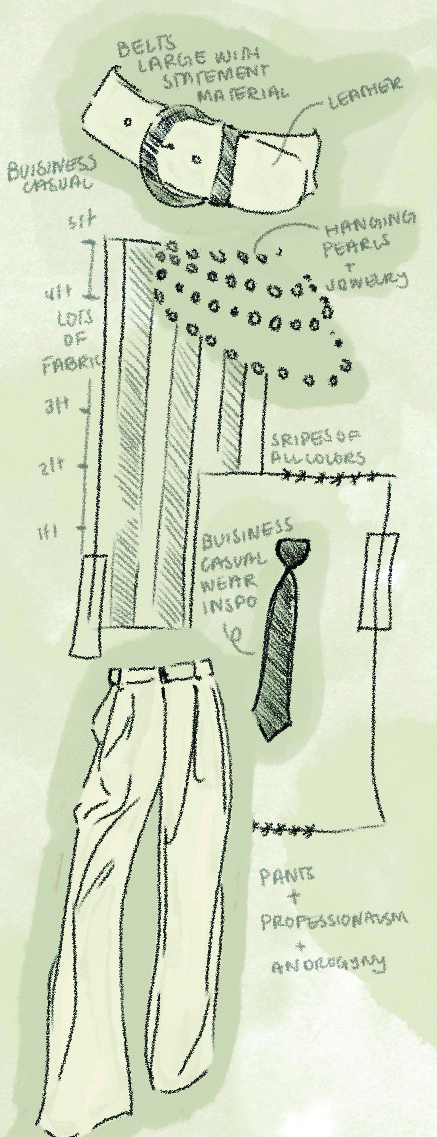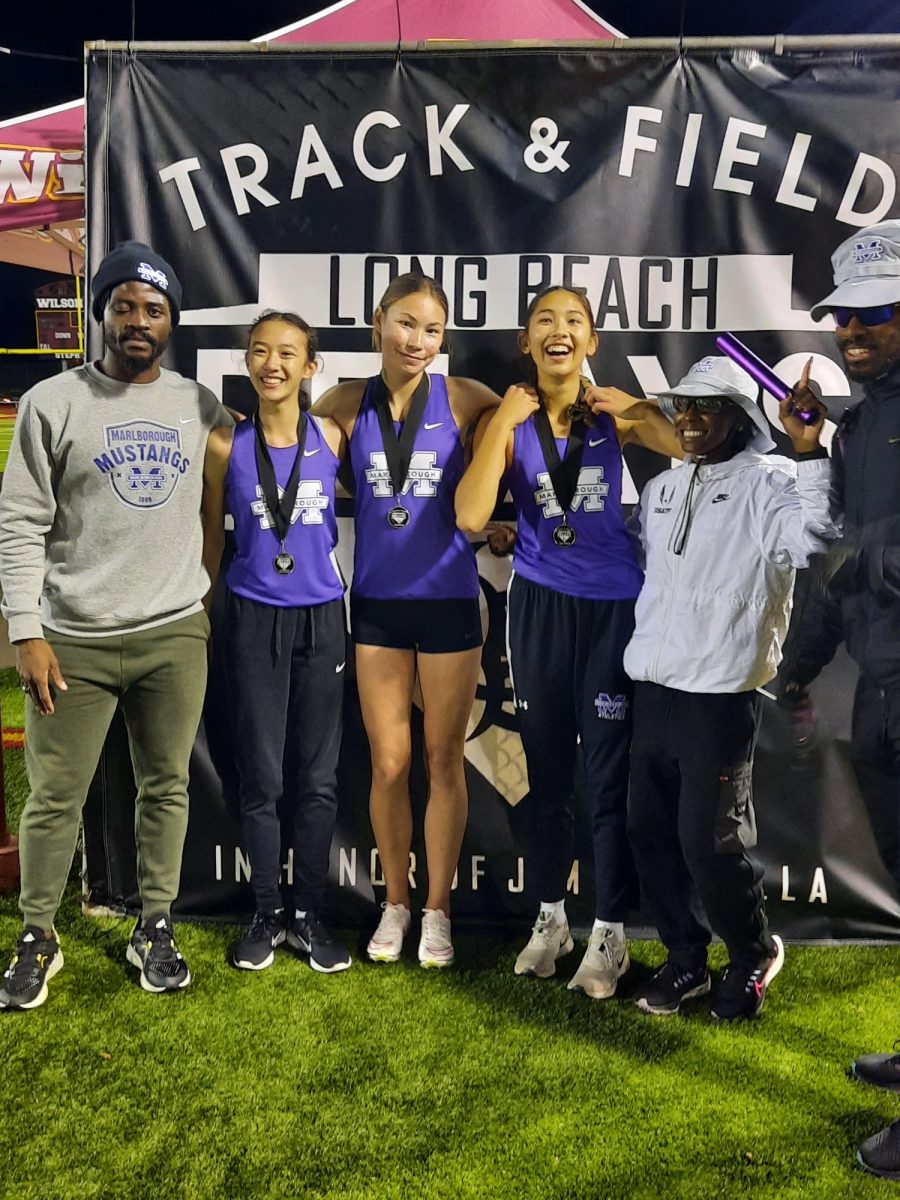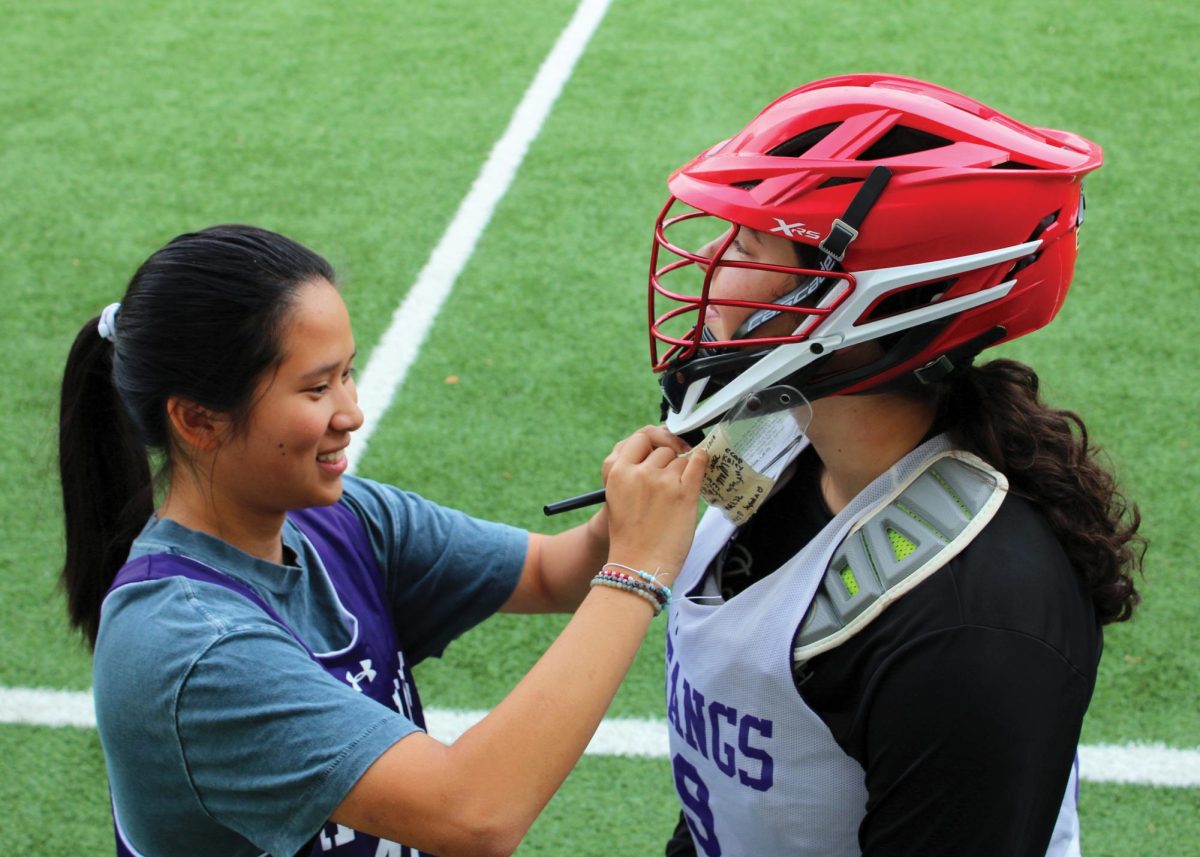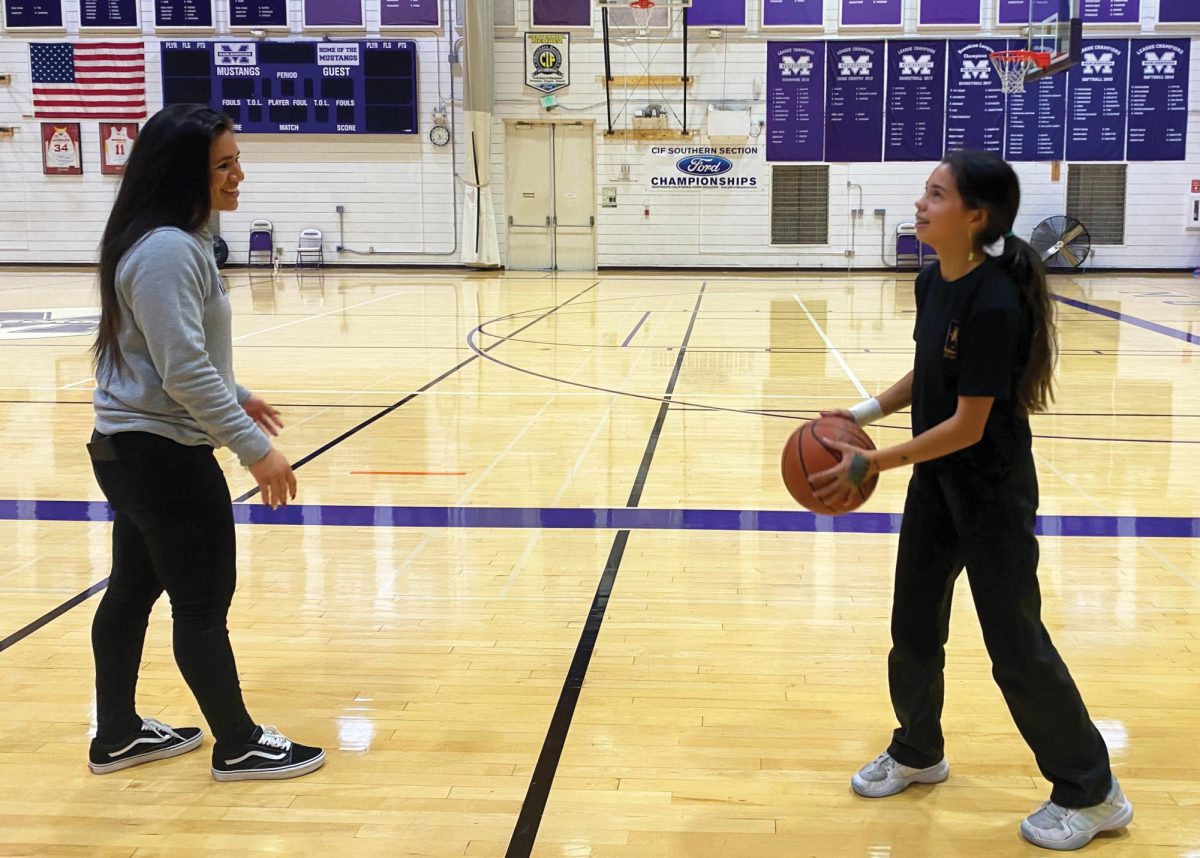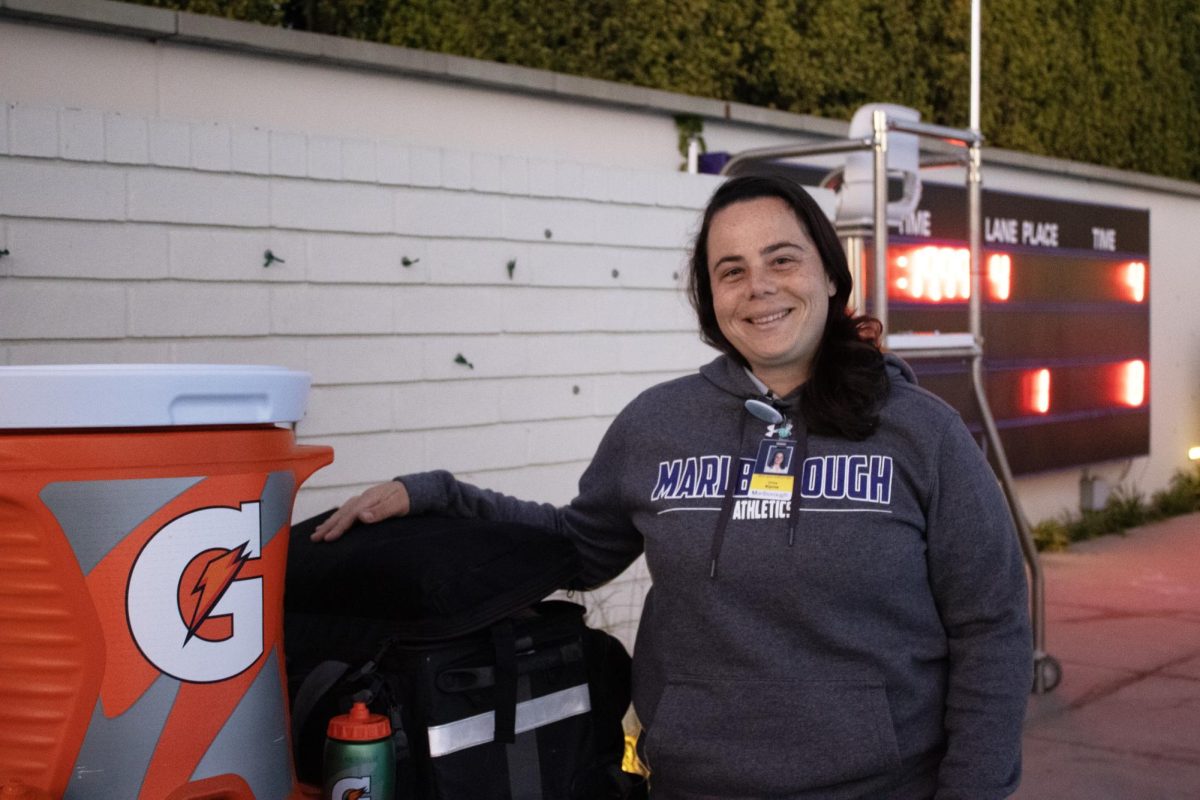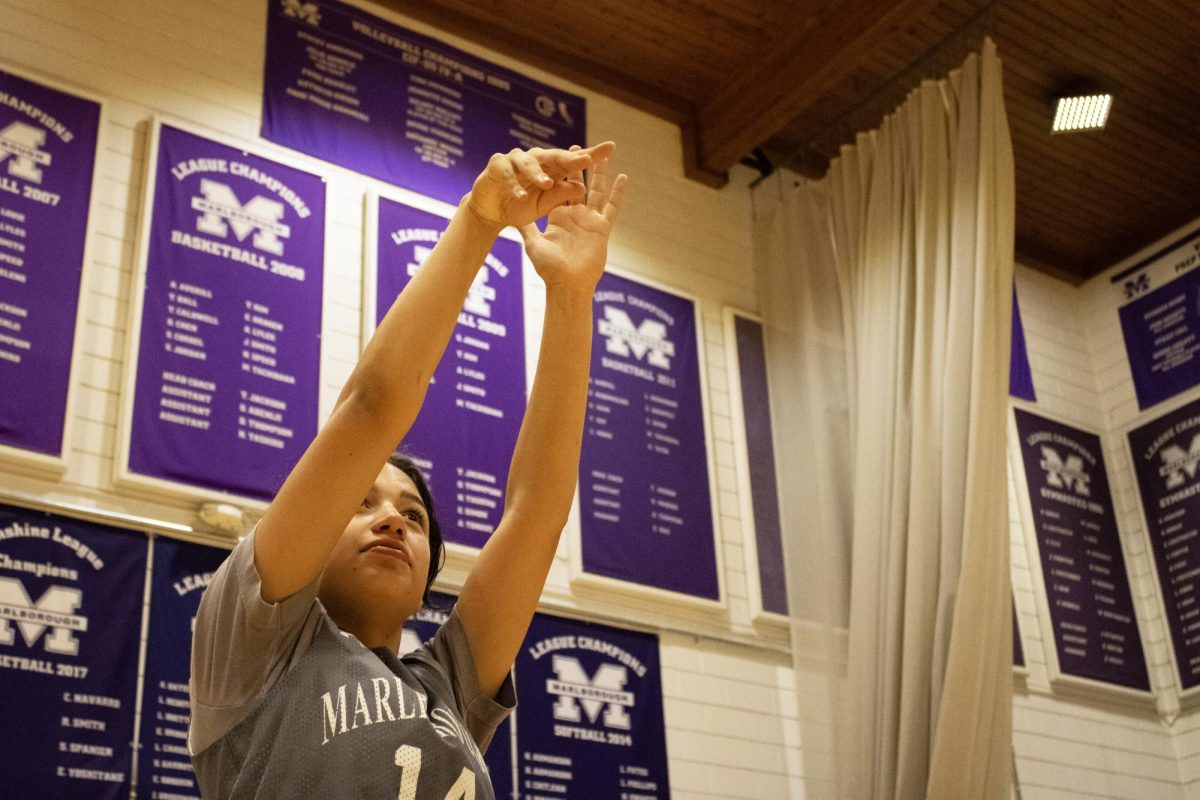
Many students are envious of the girls who use athletics as their ticket to college, but there’s a real sacrifice to be made when they get on campus and have to hold up their end of the deal
Stefanie Corgel ’09 is pounding out papers a week in advance so she can go to a tournament in Idaho. Jane Huh ’07 is giving up her dream semester in Europe so she can focus on tennis. Emily Sufrin ’09 is choosing a relaxing Thursday night in instead of a big party to prepare for her race on Saturday. But these girls are only three of many that think being a recruited college athlete has been one of the most challenging yet rewarding parts of their college experience.

At first glance, people are quick to judge the college recruiting process. Especially as qualified girls get rejected from their first choice schools, it is not unusual to find someone who feels that recruiting gives girls an unfair advantage. However, recruited girls and college coaches strongly disagree, arguing the commitment is far from effortless, especially while managing their school work.
In the past 10 years, our athletics program has sent dozens of girls to highly competitive collegiate programs. Those that were interviewed by the UV gave the resounding message that there is nothing easy about commitment to college sports once they actually get there. And at a special recruiting information session held Feb. 11 in Munger Hall for aspiring college athletes, USC soccer coach Ali Khosroshahin and Marlborough soccer coach Leah Tapscott gave attendees a similar message.
Sometimes, when juggling sports, academics, and a social life, it can “seem like you’re burning the candle at both ends, like you’re spreading yourself too thin,” said Tapscott, who played soccer and ran track at Stanford.
She said, though, that with the right attitude, it’s possible to reach a balance. “I had a life, I was able to make it all work,” she said.
Most sports end up being all year round due to off-season training, and college athletes have no time to mess around; Khosroshahin agreed that it’s a lot to handle.
“Time management skills are essential,” he said.
Khosroshanin said he emphasizes the importance of academics with his players.
“The academics is what defines your time in college,” he said.
Most of the athletes interviewed by the UV agreed that school comes first.
Corgel, who now is a freshman on the UCSB Gauchos basketball team, said, “It’s knowing that after a very long day of three classes and a three hour practice you must still utilize the two hours of study hall you have afterward.”
But some athletes feel that because they’ve been playing their sport for so long, balancing these heavy components of college is nothing new.
“Because of such a long career in high school athletics, you already know your limits,” freshman Cross Country runner, Sufrin said.
However, no matter how long these girls have been balancing classes, sports and social life, it remains an ongoing challenge.
“I’m still trying to find a balance between the three. It comes down to realizing that I can’t always follow my friends since I have to do my work,” said Kate Grace ’07, now a track star at Yale following her years of breaking records at Marlborough on the cross country and track teams.
Former Mustang volleyball player Kathryn Turner ‘05, a recent graduate of the University of Pennsylvania, said that, looking back, she agreed with Khosroshahin – time management is essential to being a collegiate athlete. But as hard as it is, Turner said you don’t have to do it alone, and there are resources set in place just for athletes to help manage the school work.
“There were academic advisors and proctored exams just for athletes,” Turner said.
Not only do colleges provide support, interviewees said that being on a team is like being part of a second family, and teammates offer you the comfort of knowing that there are others in your situation.
“We do everything together. Go to class, practice, eat, sleep, study, travel, do extra workouts, and party too. We’re together so much that I miss them whenever I’m not with them,” Corgel said.
The familiarity of a sport can help students adjust to college life, while they are getting used to the idea of being away from home and in a place with a different routine than they’re used to.
Spencer McAndrews ’08, who plays volleyball at Brown, is happy that she made an effort to get recruited, and thinks she has benefited from the experience.
“I stand by my decision made senior year to make sure I played volleyball in college,” McAndrews said. “Having a team and having the one constant – volleyball – definitely makes the transition much easier.”
While playing in college, Turner says her teammates were her best friends. Now after graduating she still considers them to be her closest friends.
Despite great camaraderie, sometimes being surrounded by other recruits can be discouraging. Athletic Director David Collicutt said he knows of a few athletes who were shaken when they realized they were no longer the best.
“You might be a super star on your high school team, but then when you join a team of all super stars in college you get a real reality check,” Collicutt said.
While some girls quit because of the intense competition for playing time and in practice, others were forced to take leave because of injuries.
Although Casey Schuur ’03 said she had a great time playing volleyball at Baylor, she was forced to give up volleyball after a back injury. She recalls how grueling college athletics are physically.
“It was always a running joke on our team that you weren’t a true player until you got a debilitating injury,” Schuur said.
Some athletes who did play sports all four years are extending their careers past graduation. Emily Tay ’05, who graduated from Harvard, is currently playing professional basketball in Germany.
“If I had lost my drive for the game and didn’t want to play basketball anymore, I definitely wouldn’t get to live, learn, or experience Europe the way I get to now,” Tay said.
Whether or not athletes choose to pursue sports related careers after college, most agree that the time management skills they gained playing sports have carried on into their post college pursuits.
Kerri Lutfey ’05, who was on the University of Pennsylvania’s gymnastics team, is now pursuing a law degree, but has not forgotten her experience as a college athlete.
“I learned self-discipline and responsibility by doing gymnastics in college, which gave me the confidence to pursue becoming a lawyer,” Lutfey said.
Being a college athlete not only helps with life after college, but it also offers a unique, unparalleled experience during those four years.
Corgel said that travelling the country has been one of the many perks of being a college athlete.
“I never thought I’d find myself walking through a snowbank in Moscow, Idaho to get to the entrance to a gym,” Corgel said.
Corgel said that having the ability to represent your school is another one of her favorite things about the experience.
“I love being able to say that I’m on the Women’s Basketball team. With that title comes a great level of respect and credit for being able to balance school, basketball, and a social life, as well as the responsibility of being a role model for others,” said Corgel.




